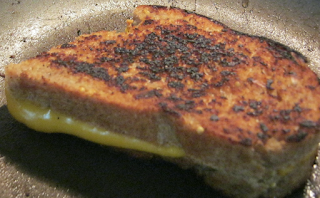"This is what I will do in the last days, God says:
I will pour out my Spirit on everyone.
Your sons and daughters will proclaim my message;
your young men will see visions,
and your old men will have dreams.
Yes, even on my servants, both men and women,
I will pour out my Spirit in those days,
and they will proclaim my message."
Acts 2:17-18 (Good News Translation)
At our February 4 Virginia Conference Winter Delegate Assembly Andrew Fairfield, pastor of the Christiansburg Mennonite Church, was elected as our next moderator-elect. At 37, he is the youngest person to be chosen for this role in my memory, garnering 80% of the vote.
This kind of vote has usually been near unanimous, so I'm not sure whether the other 20% of the delegates believed he was too young or too progressive for that role or what, but he presented well as a mature and dedicated servant leader who genuinely loves his church. And meanwhile I've learned that multiple older persons were contacted by the nominating committee but declined.
I personally feel blessed to have been licensed to assist Jesse Byler as pastor of the Zion Mennonite Church when I was only 26, and without any seminary education at the time. I was ordained as lead pastor at 29, blessed by Byler's and others' significant encouragement as my mentors. I owe the Zion congregation more than they will ever know for their support and trust during twenty-plus years of ministry in that church.
In an earlier era it wasn't unusual for young men in their 20's and 30's in our conference (no women, though, in spite of their Anabaptist heritage) being given major church responsibilities. For example, Lewis J. Heatwole, an innovative and effective leader in the early history of Virginia Conference, was ordained a minister at 34 and became a bishop five years later, George R. Brunk I was ordained at 19 years of age and was made bishop at 25. He lived to be 63 years old after a life of strong leadership and writing, and was the husband and father of 9 remarkable children.
In the mid-1900's Myron Augsburger was ordained as a minister at age 22, after having already been licensed as a pastor of the Tuttle Avenue Mennonite Church several years prior, and became president of Eastern Mennonite College at age 35. He succeeded John R. Mumaw, who had been appointed to that office at 44.
According to the Mennonite Yearbook, well known Mennonite leader Paul Lederach of the Franconia Mennonite Conference was ordained at 19 and became bishop at 24, and one of his colleagues, author and minister John Ruth, was ordained at age 20.
In contrast, the majority of today's Virginia Conference lay and ordained delegates and church leaders are in their 50's, 60's and older. Interestingly, one of the items for consideration in our February delegate session was whether we should amend the bylaws to allow congregations to have an additional youth or young adult delegate (defined as being between the ages of 16 and 21) to take part in our Assemblies.
In my mind, if we are serious about baptism initiating us into full fledged membership in the body of Christ, should that even be a question? In my opinion there should be no junior or second class members in Anabaptist congregations. We need all of the gifts, wisdom and insights of our youth and young adults can provide, along with those of our aging men and women.
Speaking of Anabaptists, the first recorded adult baptisms were of George Blaurock, a 30-year-old ex-priest, and Felix Manz and Conrad Grebel, each 26-year-old university students. This was in defiance of laws mandating that all infants be baptized in order to have the right to state citizenship and church membership. Young Felix Manz was drowned in the Limmat River soon thereafter by Zurich's Reformed state church for advocating the kind of freedom of religion we now take for granted, but which was an idea considered both heretical and dangerous at the time.
Anna Manz, Felix Manz's mother, who was later tortured and pressured to give the names of some of these rising Anabaptist leaders, assured the authorities that the persons meeting in her home were "just some women." Which was true, except the women in question were in fact active evangelists, something unheard of in that time.
In an era when young adults are leaving the faith in droves, we need to hear and heed active members of a younger generation who can help us see visions of both "new wine" and "new wineskins."
Jesus, at 30, was one of those.
Please comment below if you can add to the list of church leaders you know who were given major church responsibilities at a young age.



